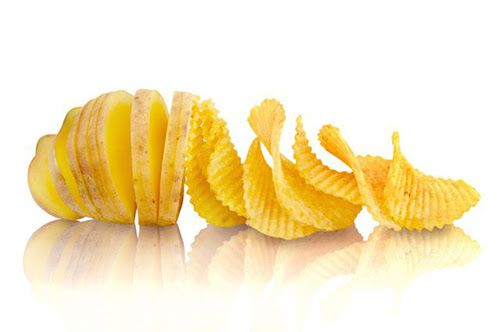The farmland market is expected to remain strong going into 2023. Compeer Financial Senior Real...
Scientists Develop Better Potatoes, for the Sake of Chips

You can’t eat just one. Potato chips are America’s classic snack: crunchy, salty, and tasting of potato or flavored with things like sour cream, vinegar, BBQ, maple bacon, or Cajun dill. And each year chip lovers across the country celebrate them on National Potato Chip Day.
It shouldn’t be a surprise that Americans eat more potato chips than any other nation; more than four pounds a person a year, according to Potatoes USA. About 22 percent of the U.S. potato crop — nearly 7,500 million pounds annually — are made into chips. Consumers spend more than $7 billion dollars buying potato chips at retailers. And USDA’s Agricultural Research Service (ARS) helps ensure that the country always has the perfect potato for frying into chips.
In fact, the ARS potato breeding program has already produced some major winners in the potato chip category. One is the Atlantic variety. It remains the number two chipping variety in the United States.
But potato producers have been ready for an Atlantic replacement for years. Atlantic is vulnerable to internal heat necrosis and hollow heart, diseases that limit production and processing results.
“But diseases and pests keep evolving, so we need to keep breeding new varieties to stay ahead of them,” explained Research Geneticist Richard Novy with the Small Grains and Potato Germplasm Research Unit in Aberdeen, Idaho.
Every year, scientists in the ARS potato breeding program make thousands of chipping potato crosses with an eye to improving not only disease and pest resistance but also achieving perfect potato chip color and proper sugar levels, good storage ability and a whole host of superior agronomic traits, such as yield time to harvest and tuber size.
Novy has a very promising new chipping potato in the pipeline at Aberdeen, known right now as A13125-3C, which is showing much potential in Idaho and in the National Chip Processing Trial (NCPT). ARS participates alongside universities and industry in the NCPT, which is run through Potatoes USA to test potatoes simultaneously at sites all over the country.
A13125-3C won’t get a catchy variety name until after it successfully completes several years of trials and then goes through a tissue culture process to remove any viruses and bacteria to allow the production of certified seed for producers.
“By sharing access to germplasm and testing nationally, you can more quickly identify candidates having variety potential for the chipping industry,” Novy said. “Such a program helps regional chip companies to identify promising new potato varieties for their production of chips.”
EDITOR’S TAKE:
I can personally attest that USDA’s ARS is an excellent research operation. The fact that they are focusing on the development of improved chip varieties for potato growers is significant and will certainly produce positive results. Improving disease resistance and improving quality characteristics will help potato growers to lower production costs and, in turn, provide consumers with a better end product. With chips taking up 27% of the total potato crop, these developments will be that much more significant to the industry. Make sure to include potato growers when marketing your CAD affiliation and the benefits of AgPack®.








